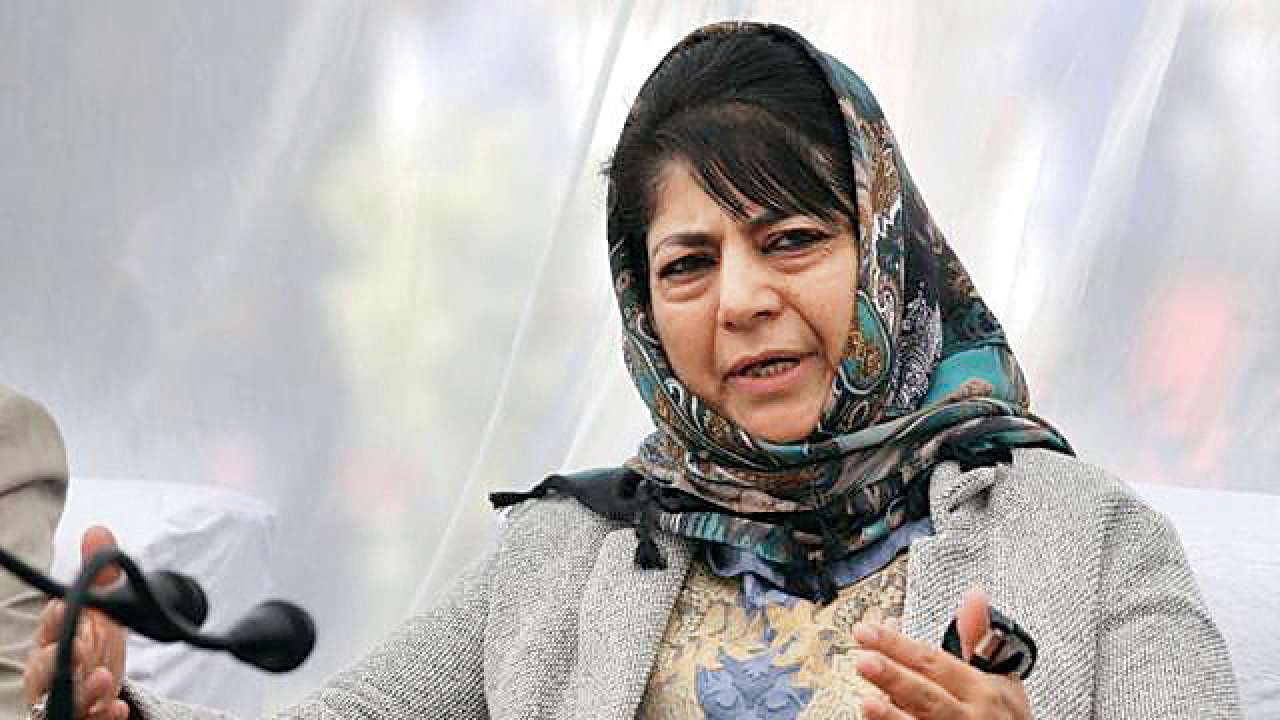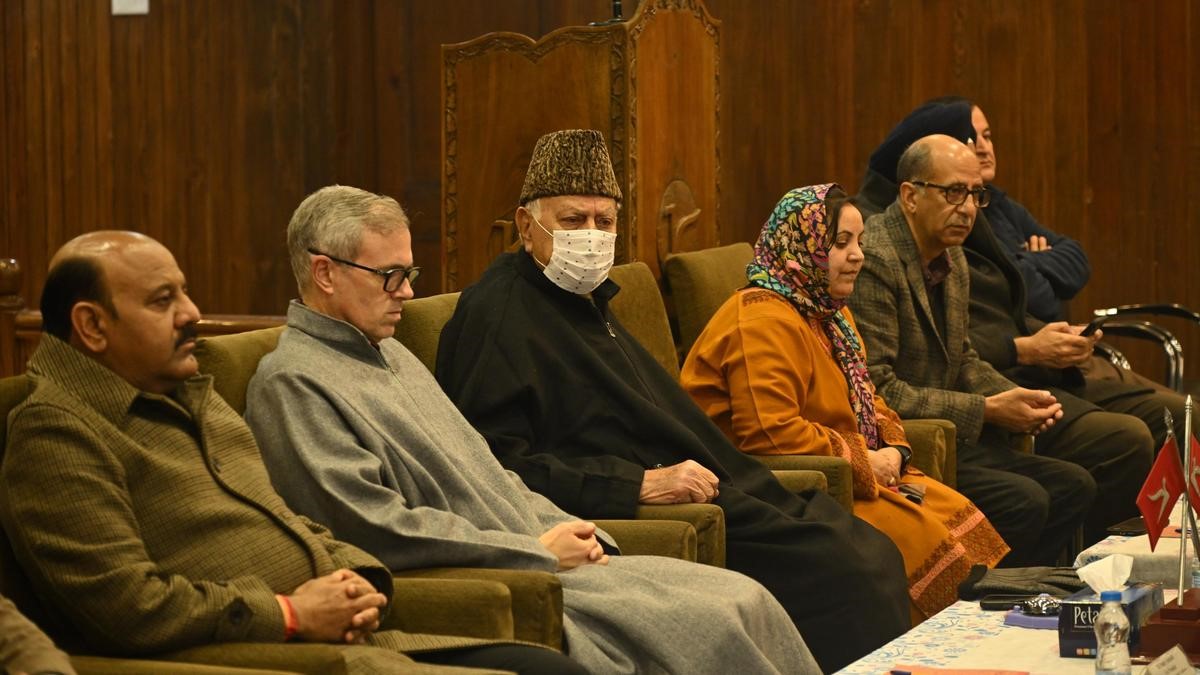Kafil-ur-Rehman Joins PDP: Political Shakeup in Karnah, Kupwara District
By: Javid Amin | Srinagar | 03 Aug 2025
A Political Shift with Regional Ripples
In a region where political allegiances are tightly woven into the social and geographical fabric, Kafil-ur-Rehman’s switch to the Peoples Democratic Party (PDP) is more than a mere party change. It’s a potential reshaping of power dynamics in Karnah, Kupwara, and perhaps an indicator of a broader political realignment in border constituencies of Jammu & Kashmir.
As a two-time MLA and seasoned politician with deep grassroots connections, Rehman’s move from the National Conference (NC) to the PDP—after a brief interlude of supporting the People’s Conference (PC)—has rekindled interest in the political recalibration of north Kashmir.
This article unpacks the significance of his political journey, Mehbooba Mufti’s strategic embrace, regional reactions, and how this shift may affect the Pahari-speaking border population, neglected regions, and PDP’s long-term revival strategy.
Kafil-ur-Rehman’s Political Journey: From NC Loyalist to PDP Ally
Early Rise in Karnah: The NC Years
Kafil-ur-Rehman began his political career with the National Conference, Jammu and Kashmir’s oldest political party. A resident of Karnah, he won the 2002 and 2008 Assembly elections, representing his border constituency with a reputation for grounded leadership and accessibility.
Rehman stood out in Kupwara’s political landscape for being one of the few leaders who consistently raised local issues in the J&K Assembly—particularly border hardships, poor road infrastructure, limited educational institutions, and security restrictions affecting daily life in Karnah.
He developed a voter base anchored in grassroots mobilization, tribal representation, and local identity politics, becoming a trusted figure among Karnah’s Pahari and Gujjar communities.
2014 Setback: A PDP Challenge Emerges
In the 2014 Assembly elections, Rehman faced defeat at the hands of Raja Manzoor of PDP, signaling a wave of political change and discontent in the region. It wasn’t just a personal loss; it reflected growing dissatisfaction with traditional parties like the NC and the need for development-centric governance.
Following this, Rehman stepped back from electoral politics but remained active in local civil engagement, frequently voicing community issues through public meetings and social media.
A Surprising 2024 Move: Supporting People’s Conference
In the 2024 Lok Sabha elections, Rehman took a political gamble by supporting a People’s Conference (PC) candidate—likely driven by a combination of personal convictions, political calculation, and perhaps NC’s diminishing influence in certain areas of Kupwara.
Though he didn’t formally join PC, his backing raised eyebrows and signaled he was no longer tethered to the NC. Yet the gamble didn’t pay off electorally, and PC failed to capitalize significantly on his influence.
A New Chapter: Mehbooba Mufti’s PDP Welcomes Rehman
The Ceremony: Symbolic and Strategic
Kafil-ur-Rehman’s official induction into PDP, held in Srinagar, was attended by Mehbooba Mufti herself—an event rich in symbolism. For PDP, the optics were clear: the party is regaining ground and consolidating influence ahead of the expected Assembly elections in Jammu and Kashmir.
“Kafil Sahib’s entry strengthens our commitment to grassroots leadership and inclusive politics,” said Mehbooba.
Mehbooba’s Message: Unity, Development, and Kashmir First
Mehbooba Mufti emphasized Rehman’s long-standing connection with the people of Karnah and described his switch as part of PDP’s broader mission to rebuild from the ground up.
She underscored PDP’s focus on:
-
Inclusive development, especially for border and remote communities.
-
Upholding civil liberties and democratic rights post-Article 370.
-
Strengthening the “Kashmir First” ideology, centered on local empowerment over top-down control.
PDP’s Gains: More Than Just a New Face
Rehman’s addition to PDP gives the party:
-
A credible local leader with a strong voter base in Karnah.
-
A foothold in Kupwara, a politically vital district with multiple swing constituencies.
-
An opportunity to consolidate tribal and border region votes often ignored by urban-centric leadership.
Kafil-ur-Rehman’s Agenda: Voice for the Border & the Marginalized
Advocating for Karnah: A Neglected Frontier
Speaking at his induction, Rehman said:
“Karnah has been treated as an afterthought in J&K politics. I’m joining PDP to ensure it gets the attention and development it deserves.”
He pledged to:
-
Campaign for improved road connectivity, especially the Sadhna Top route, which remains closed for months due to snow.
-
Advocate for full 4G/5G mobile coverage, a critical issue for students and small businesses.
-
Press for border tourism to enhance local livelihoods while promoting peace.
Pahari & Tribal Representation
Rehman’s alignment with PDP also reflects growing calls for equity in reservation policies. The Pahari community in Karnah has long demanded Scheduled Tribe (ST) status, which has been granted to them in principle but is still awaiting proper implementation.
His move to PDP comes amid a broader political contest over who best represents tribal voices—a constituency increasingly seen as kingmakers in several border seats.
Political Impact: Changing Dynamics in Kupwara District
Kupwara’s Electoral Landscape: A Battleground
Kupwara district holds a mix of ideologies, tribal demography, and security-sensitive zones. Historically dominated by NC and PC, the PDP’s revival here is significant. With Rehman onboard, PDP has:
-
Renewed its presence in Karnah, where it lost ground post-2014.
-
Acquired a grassroots mobilizer who understands both electoral arithmetic and community issues.
-
Gained potential influence in adjacent areas like Trehgam, Lolab, and Handwara.
Strategic Timing: Ahead of Assembly Polls
Rehman’s timing is no coincidence. The buzz around upcoming Assembly elections—the first since J&K’s statehood was revoked in 2019—has led parties to restructure and reposition themselves.
His entry:
-
Signals PDP’s intent to contest aggressively in north Kashmir.
-
Sends a message to floating voters that PDP is no longer on the back foot.
-
Pressures NC and PC to strengthen their local networks before election season.
Regional Reactions: Praise, Concerns, and Rival Party Pushback
Warm Welcome from PDP Cadre
Local PDP workers in Karnah celebrated the move with rallies and social media campaigns, calling Rehman’s decision a homecoming for pro-people politics. PDP’s base hopes he can:
-
Reignite voter enthusiasm, particularly among youth and first-time voters.
-
Revive issue-based campaigning, rather than identity or loyalty politics.
Silence and Caution from National Conference
The NC, though silent officially, is reportedly disappointed over losing one of its last recognizable faces in Karnah. Party insiders hint at internal disputes and lack of electoral confidence post-2019 as contributing factors.
NC leadership may now look to emerge younger leaders or seek new alliances in the district.
People’s Conference: Watching Closely
The People’s Conference, led by Sajad Lone, is keeping a close eye. Though not directly affected, Rehman’s drift back toward mainstream regional parties could influence fence-sitters who were previously warming up to the PC.
The People’s Pulse: Hopes and Skepticism
Hopes for Development & Visibility
Many locals in Karnah believe Rehman’s switch could bring:
-
Better legislative focus on their issues.
-
Increased media and political attention to the region.
-
A more accessible bridge between Srinagar and this border belt.
“We’ve been living under the shadow of LOC firing and government apathy for decades. Maybe now, our issues will reach the Assembly again,” said a Karnah resident.
Concerns of Opportunism
Some critics accuse Rehman of political opportunism, pointing to his switch across party lines and support for PC just a year ago.
Others say such shifts are not unusual in J&K politics, where ideological rigidity often takes a backseat to constituency development.
What Lies Ahead: Predictions & Possibilities
PDP’s Bigger Strategy
Kafil-ur-Rehman’s entry may be the first of many strategic inductions by PDP ahead of polls. The party appears to be focusing on:
-
Reclaiming lost bastions like Anantnag, Shopian, and now Kupwara.
-
Aligning with tribal, border, and Gujjar-Bakarwal communities.
-
Repositioning itself as a voice for dignity and decentralization.
For Rehman: The Stakes Are High
His political credibility now hinges on:
-
Delivering tangible outcomes in Karnah.
-
Staying consistent in his public stance.
-
Avoiding the perception of party-hopping without substance.
Conclusion: A Ripple or a Wave?
Kafil-ur-Rehman’s joining PDP is more than a footnote—it’s a potential inflection point in Kashmir’s changing political narrative. It reflects frustration with old loyalties, renewed faith in grassroots democracy, and the urgent need for border voices to be heard.
In a region slowly inching back to electoral normalcy post-Article 370, every shift counts. Rehman’s decision could either reinvigorate PDP’s fortunes in north Kashmir or simply mark another twist in the valley’s ever-evolving political saga.
Either way, Karnah will be watching.



